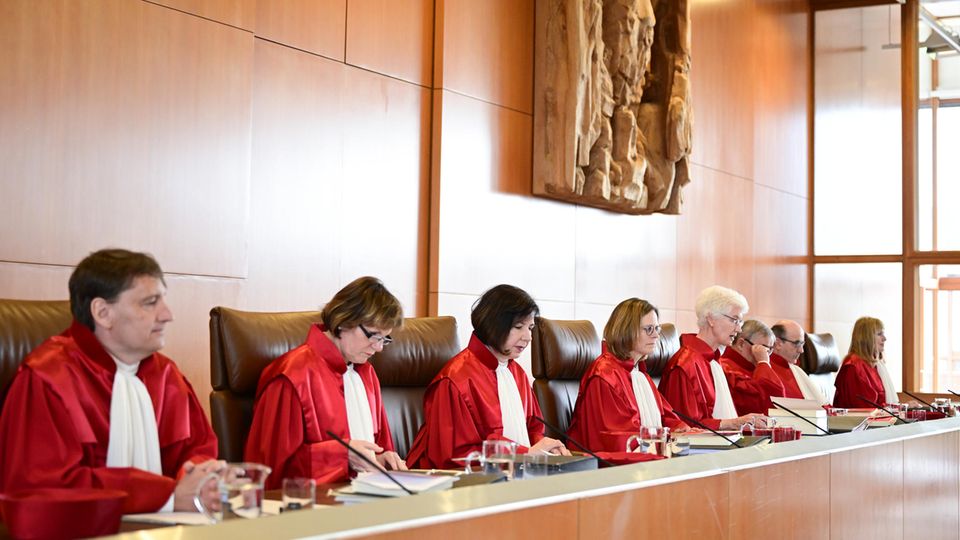Reform overturned
Federal Constitutional Court: Multiple indictments for the same crime are unconstitutional
The Federal Constitutional Court in Karlsruhe ruled that a reform of the criminal procedure code that came into force in 2021 was unconstitutional and void
© Uli Deck / DPA
“Ne bis in idem”, not twice in the same matter: According to the legal principle, someone who has been acquitted of the same charge cannot be tried again. In Germany the law for serious crimes has been changed. Now the highest German court has ruled on this.
Only on the basis of new evidence can acquitted suspects after a verdict of the Federal Constitutional Court will not be charged again for the same crime. The reform of the criminal procedure code that came into force at the end of 2021 is unconstitutional and void, the highest German court decided on Tuesday in Karlsruhe (ref. 2 BvR 900/22). A man who is said to have killed a student in Lower Saxony in 1981 was sued and was charged again based on new evidence. The retrial must be ended, said presiding judge Doris König.
Reform should make it easier to reopen criminal trials
The highly controversial reform made it possible to retry suspects based on new findings. The Bundestag decided to change the Code of Criminal Procedure (Section 362) at the time of the grand coalition between the Union and the SPD.
Previously, it was only possible in a few cases to reopen a legally concluded case to the detriment of the defendant – for example in the case of a confession. Since the law reform, this has also been the case when “new facts or evidence” emerge. The regulation is limited to the most serious crimes such as murder, genocide and war crimes, which do not have a statute of limitations.
When drafting the law, Federal President Frank-Walter Steinmeier suggested that it be “subjected to renewed parliamentary examination and consultation” due to constitutional doubts. After the change of government in the federal government, Federal Justice Minister Marco Buschmann (FDP) also called for it to be examined again. Otherwise any acquittal would be conditional.
Murder trial in the 1980s: acquitted man files constitutional complaint
The specific reason for the review by the highest German court is the Frederike murder case. A man is suspected of raping and stabbing a 17-year-old from Hambühren near Celle in 1981. This could not be proven to him at the time. In 1983 he was legally acquitted. But according to a new DNA study, he could be the perpetrator. He was supposed to be tried, but he filed a constitutional complaint.
The star reported:
The Karlsruhe judges stopped the trial at the Verden regional court. The man was released until further notice. In the summer, the Constitutional Court extended the suspension of the arrest warrant and removed conditions. Among other things, the man had to report to the public prosecutor’s office twice a week and was not allowed to leave his place of residence without permission.
At the oral hearing in May, Frederike’s sister addressed emotional words to the Second Senate through her lawyer: “Her death is not barred by the statute of limitations in our family history,” said former federal prosecutor Wolfram Schädler on behalf of his client, who did not come to Karlsruhe. Frederike’s father had fought for reform of the criminal procedure code for years. Among other things, he put a petition online, which around 180,000 people signed. Frederike’s sister said that the fight was not over with her father’s death. Time does not create peace, the pain does not diminish. The family hopes for peace.


